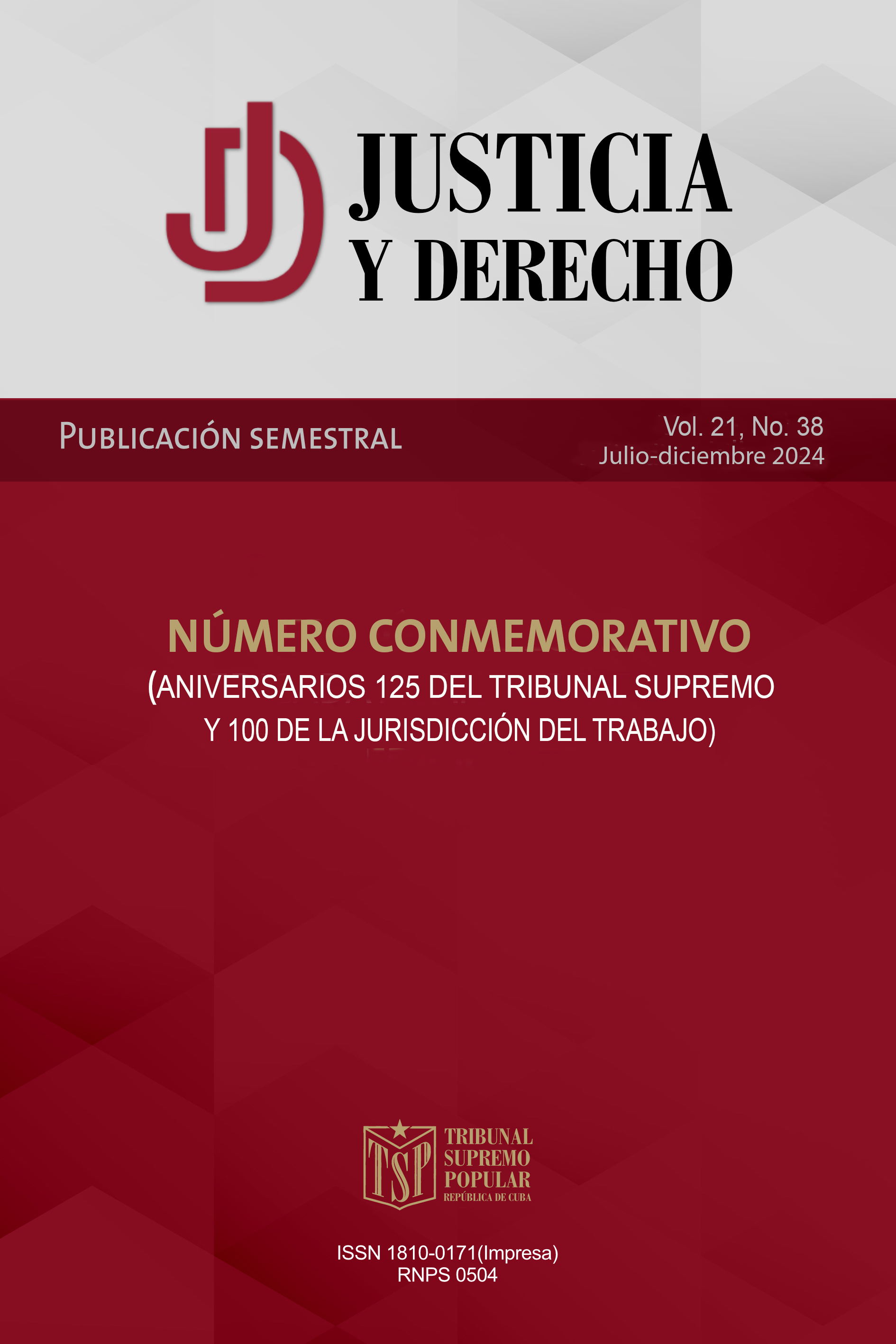Constitution of 2019: Effectiveness of rights and guarantees
Main Article Content
Abstract
The 2019 Constitution has represented a significant leap in terms of rights and guarantees compared to the previous text. It preserves essences, issues already conquered ―some of which require correction― and, also, others that are new for the national legal dynamics. It is not only a political program, but it establishes legal rules and guidelines that condition new regulations, policies and decisions of state bodies, political and social organizations, and citizens, in general. Consequently, it is necessary to evaluate and perfect the way, the measures, in order to ensure what is wanted and promote its implementation in pursuit of its effective realization. To achieve this goal, the intervention of the Justice System is essential, and even more so today with the superior guarantee rules. Therefore, some lower rules must be readjusted, conceptions and actions modified; these are challenges that must be faced to ensure that the Constitution takes precedence over the political, social and ordinary legal aspects; and be an effective guarantor of the country's design and for all rights.
Downloads
Article Details

This work is licensed under a Creative Commons Attribution-NonCommercial 4.0 International License.
References
Constitución de la República de Cuba. (Febrero 24, 1976). GOR-EE, (2), 3-18.
Constitución de la República de Cuba. (Abril 10. 2019). GOR-E, (5), 69-116.
Cumbre Judicial Iberoamericana. (2012). Decálogo iberoamericano para una justicia de calidad https://www.cumbrejudicial.org/productos-axiologicos/decalogo-iberoamericano-de-la-justicia-de-calidad
Fernández Bulté, J. (2005). Teoría del Estado y del Derecho. Félix Varela.
Ley No. 127, «Ley electoral». (Agosto 19, 2019). GOR-O, (60), 1271-1318.
Ley No. 131, «Ley de organización y funcionamiento de la Asamblea Nacional del Poder Popular y el Consejo de Estado de la República de Cuba». (Enero 16, 2020). GOR-E, (6), 91-137.
Ley No. 140, «De los tribunales de justicia». (Diciembre 7, 2021). GOR-O, (137), 3929-3975.
Ley No. 141, «Código de procesos». (Diciembre 7, 2021). GOR-O, (138), 3977-4069.
Ley No. 142, «Del proceso administrativo». (Diciembre 7, 2021). GOR-O, (139), 4071-4093.
Ley No. 153, «Del proceso de amparo de los derechos constitucionales». (Julio 15, 2022). GOR-O, (74), 2047-2054.
Ley No. 160, «De la Fiscalía General de la República». (Enero 13, 2023). GOR-O, (5), 87-113.
Prieto Valdés, M. (2000). Reflexiones en torno al carácter normativo de la Constitución. en Pérez Hernández, L. y Prieto Valdés, M. Temas de Derecho constitucional cubano, 11-16. Félix Varela.
Prieto Valdés, M. (2008). En pos de la aplicabilidad directa de la Constitución cubana de 1976 (un breve comentario). Ius, (21), 193-205.
«Reglamento de la Asamblea Nacional del Poder Popular». (Julio 20, 1977). GOR-O, (23), 219-233.
Reglas mínimas sobre Seguridad jurídica en el ámbito Iberoamericano. (2008). http://www.cumbrejudicial.org
Zaffaroni, E. R. (1994). Estructuras judiciales. Ediar. http://www.derechopenalenlared.com/libros/zaffaroni_estructuras_judiciales.pdf
